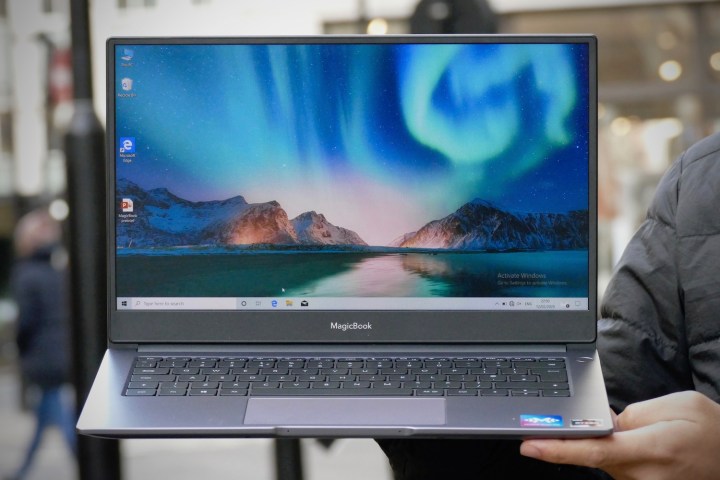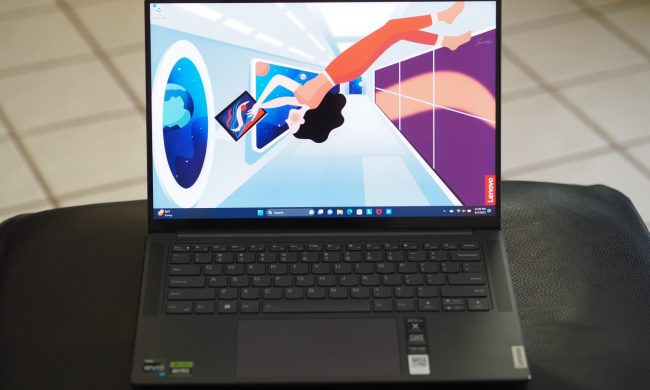
Huawei has sold MateBook X laptops globally for years. Now, for 2020, Huawei-owned brand Honor is attempting to break out of China and into the hands of owners worldwide. The Honor MagicBook 14 and MagicBook 15 are the first to be sold internationally, and like the brand’s phones, are aimed at young people on a budget.
The Honor laptops look identical apart from size and weight. A choice of mystic silver and space grey are provided, while the edge of the display lid, and the Honor logo, have a laser-etched blue tint that’s subtle yet classy.

The aluminum chassis is upmarket, and the thin bezels around the screen ensure the MagicBook looks modern and expensive. The MagicBook laptops feel solid, the keyboard has just the right amount of travel, and both
Each laptop is powered by an AMD Ryzen 5 3500U processor with Radeon Vega 8 integrated graphics. That comes with 8GB of RAM and the option of either a 256GB or 512GB SSD. Port selection includes USB Type-C, a pair of USB Type-A, HDMI, and a 3.5mm headphone jack. Like Huawei’s MateBook laptops, each MagicBook has a fingerprint sensor in the power button and a pop-up webcam set between the F6 and F7 keys. Windows 10 is the default OS, of course.
It’s screen size that separates the two. The 14-inch MagicBook has a Full HD, 16:9 screen with a 84% screen-to-body ratio. Its set inside a 15.9mm thick chassis that weighs 1.38kg. The 15-inch model is a little beefier at 1.53kg and 16.9mm thick, but the 15.6-inch screen has a higher 87% screen-to-body ratio. The aspect ratio and resolution remain the same.
The battery in each is charged with an included 65W brick, providing about 10 hours use on a single charge.
Price and availability
Honor hasn’t confirmed price or availability yet. These details will follow its February 24 launch event.
Expect the Honor MagicBook laptops to be sold through Honor’s own online store, and potentially through other retailers, with prices somewhere around the $500 to $600 mark, based on the cost of the






